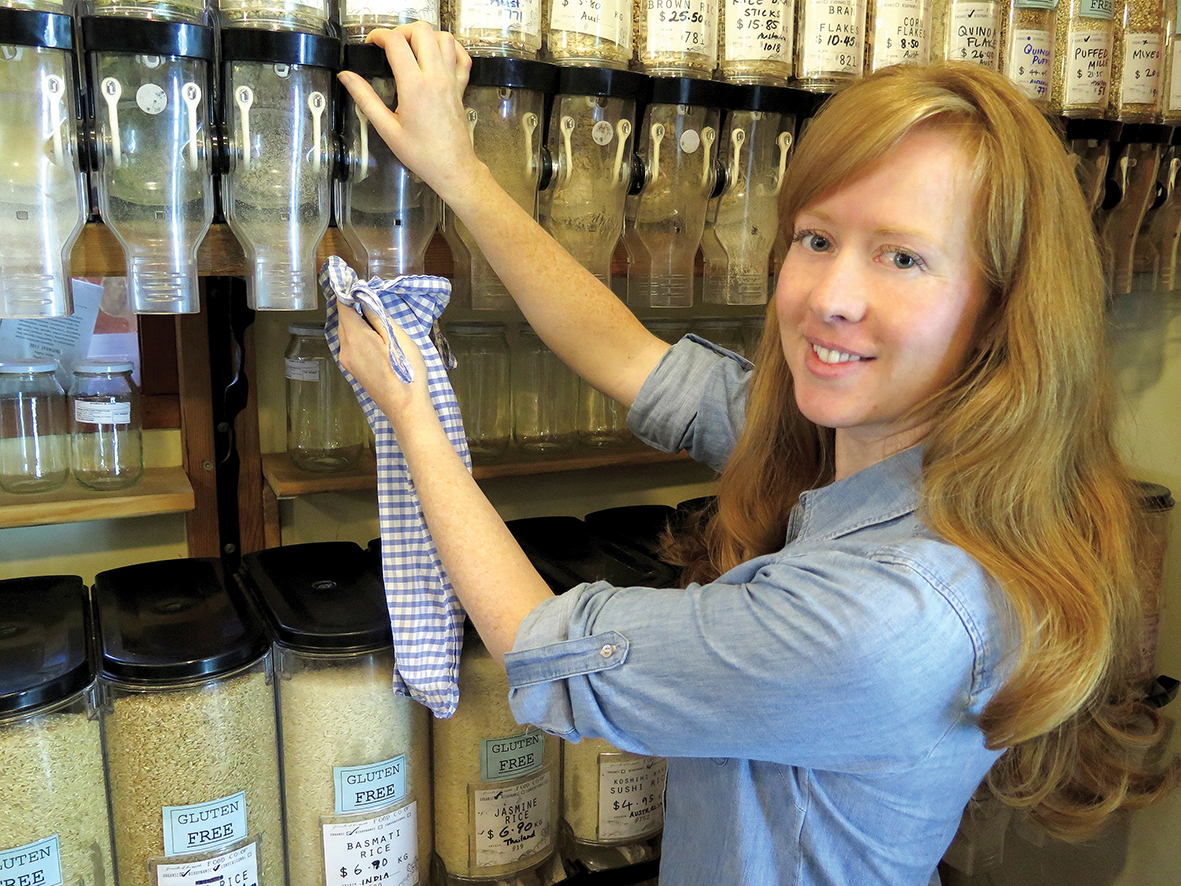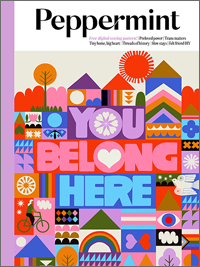
THE LAST WORD: A LIFE WITHOUT WASTE
I was told recently that zero-waste living is on-trend. The lifestyle I have been living for over 18 months has become a hot topic, and it’s got me thinking about why so many people are aspiring to reduce their rubbish.
My own path to reducing the amount of stuff I threw away began when I decided to quit plastic. What drove me to live a plastic-free life was the unnecessary misuse not only of our resources and the environment, but also animals’ lives and the human communities that suffer from our demand for plastic. Going plastic free led to a huge reduction in my rubbish and, eventually, I ended up transitioning to a zero-waste life, actively diverting 90% of my own rubbish from landfill. Nowadays, I reuse my own bags instead of using plastic ones. I have a reusable water bottle and say no to items like plastic straws and cutlery. I buy my food unpackaged. I clean my house with four simple products that can be bought in refillable bottles. My makeup is homemade, including my mascara. Composting and using up my food scraps has become routine. I don’t need to take my bin out, and my views on recycling have changed. ‘Refusing, reducing, reusing, repairing and choosing moments over things’ is my mantra. I save money, eat better and feel healthier since going plastic free and zero-waste.
The most important part of the zero-waste mantra is refusing. Learning to refuse means learning to ask questions: Do I need this? How will this affect my life? How will it affect some- one else’s life? How was it made? Where will it end up once I’m finished with it? These are just a few of the questions that cross my mind when I buy something. I want to know how the packaging was made, how many kilometres the product has travelled, whether any toxic chemicals have been created in its production and whether the factory was located close to a community that suffered for my convenience. Refusing doesn’t mean I have to become a minimalist – instead, I simply choose to buy better. I used to buy face wash, body wash, shampoo and hand wash, but refusing helped me take a step back and reduce what I thought I needed. Now I only use one soap-based product to clean my body and have learnt that my hair will survive without shampoo – and even feel healthier than ever!
I like to pick items that can be repaired in the future, either by me or someone else. Supporting businesses that provide repair services helps invest in new skills and jobs while keeping valuable resources out of landfill.
Another big part of the zero-waste philosophy is reusing. I reuse jars, cloth bags, boxes and bottles when I do my food shopping. But it goes beyond that, too. If I want to buy an item then I think about how it can be reused so I can make the most of all the resources, energy and human effort needed to put it together. Most things can be reused in some way, somehow. This goes for repairing, too. I like to pick items that can be repaired in the future, either by me or someone else. Supporting businesses that provide repair services helps invest in new skills and jobs while keeping valuable resources out of landfill.
When composting leftover food, I’m reducing food waste while feeding nutrients and miner- als to my soil that will eventually go on to be food for my garden. In turn, my garden becomes more robust, providing food that I can feed to my family and friends. Composting also removes food scraps from landfill where they won’t break down, wasting valuable nutrients and contributing to greenhouse gas emissions.
I don’t recycle much anymore. Not because I don’t want to, but because I don’t need to. While recycling has a place in our society, to me, it’s a bandaid. More people are recycling, but our consumption rates have not slowed down. I prefer to spend my money on moments rather than filling up draws and cupboards with empty purchases, since the draws and cup- boards of my mind can never be too full of memories.
The next generation should not have to deal with our rubbish. It’s not fair or kind. Zero-waste living is about living a kinder life – it’s about respecting everyone and everything – and it starts with asking a few simple questions.

